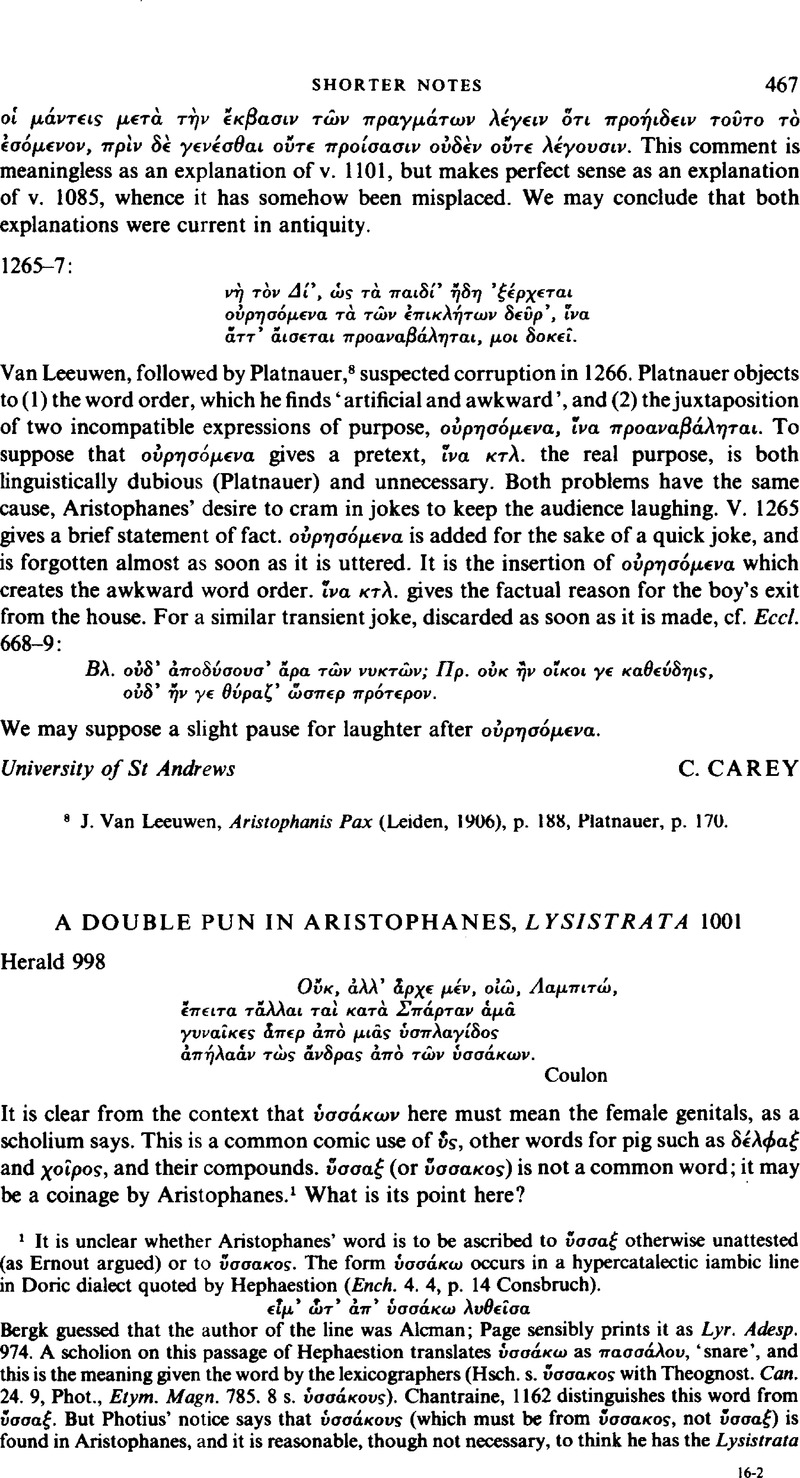Article contents
A Double Pun In Aristophanes, Lysistrata 1001
Published online by Cambridge University Press: 11 February 2009
Abstract

- Type
- Shorter Notes
- Information
- Copyright
- Copyright © The Classical Association 1982
References
1 It is unclear whether Aristophanes’ word is to be ascribed to ὐσσαξ otherwise unattested (as Ernout argued) or to ὕσσακoς The form ὐσσάκω occurs in a hypercatalectic iambic line in Doric dialect quoted by Hephaestion (Ench. 4. 4, p. 14 Consbruch).
ε***μ’ ***τ’ ⋯π’ ὑσσάκω λνθε***σα
Bergk guessed that the author of the line was Alcman; Page sensibly prints it as Lyr. Adesp. 974. A scholion on this passage of Hephaestion translates ὑσσάκω as πασσάλoν ‘snare’, and this is the meaning given the word by the lexicographers (Hsch. s. ὕσσακoς with Theognost. Can. 24. 9, Phot., Etym. Magn. 785. 8 s. ὑσσάκoνς). Chantraine, 1162 distinguishes this word from ὕσσαξ But Photius’ notice says that ὑσσάκoνς (which must be from ὕσσακoς, not ὕσσαξ) is found in Aristophanes, and it is reasonable, though not necessary, to think he has the Lysistrata passage in mind. Perhaps he confused the two words; then we may suppose that Aristophanes coined ὕσσαξ But it is also possible that ὕσσακoς ordinarily had two connotations, or that Aristophanes merely noticed its comic possibilities and decided to exploit them. I do not think this uncertainty affects my argument here: a gesture by the herald to one of the Spartan women's pubic area would make the reference of ὑσσάκων clear.
F. Lasserre thought he saw ὕ σσακoς or ὕ σσαξ in Archilochus fr. 48. 8W. (= POxy. 2311 fr. 1 [a]): ![]() M. L. West is suitably sceptical.
M. L. West is suitably sceptical.
- 1
- Cited by


